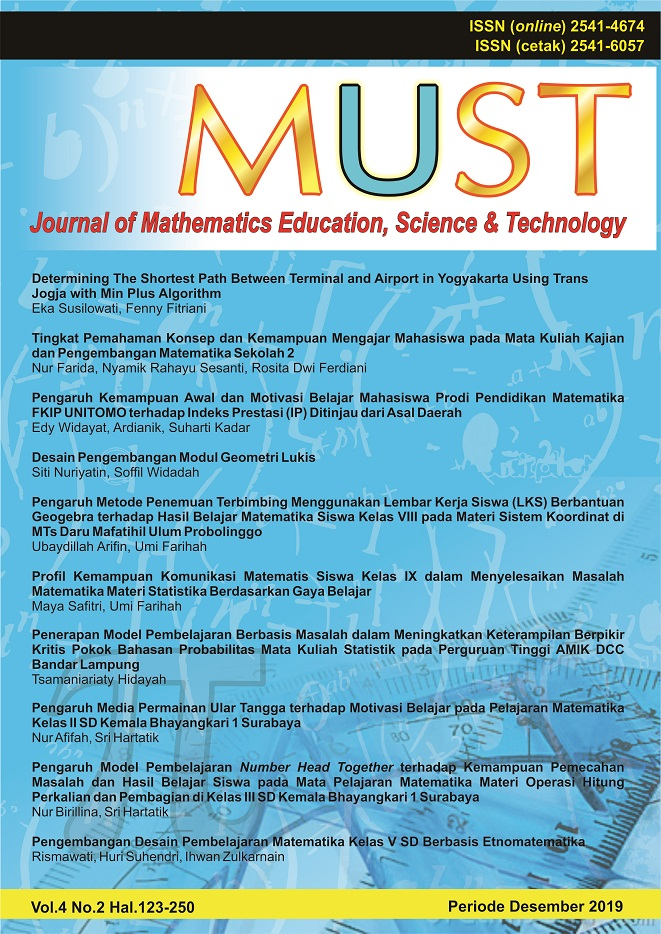Tingkat Pemahaman Konsep dan Kemampuan Mengajar Mahasiswa pada Mata Kuliah Kajian dan Pengembangan Matematika Sekolah 2
Abstract
Full text article
References
Abdurrahman. (2007). Metode Penelitian Kualitatif. Bandung: Remaja Rosdakarya.
Arikunto, S. (2010). Prosedur Penelitian (Suatu Pendekatan Praktik). Jakarta: Rineka Cipta.
Buchori. (2001). Notes on Education in Indonesia. Jakarta: Asia Foundation.
De Cecco J. P., & Crawford W. R. (1997). The Psychology. New Delhi: Prentiee hall of India, Provate Limited.
Djamarah, S. B. (2005). Guru dan Anak Didik dalam Interaksi Edukatif. Jakarta: PT. Rineka Cipta.
Effandi. (2007). Trend Pengajaran dan Pembelajaran Matematik. Kuala Lumpur: Utusan Publications dan Distributors SDN BHD
Gulo, W. (2008). Strategi Belajar Mengajar, Jakarta: Grafindo.
Hamalik, O. (2008). Perencanaan Pengajaran Berdasarkan Pendekatan Sistem. Jakarta: Bumi Aksara.
Hudojo, H. (2005). Pengembangan Kurikulum dan Pembelajaran Matematika. Malang: IKIP.
Moleong, L. (2013). Metode Penelitian Kualitatif. Bandung: Rosdakarya.
Purwanto, N. (2009). Psikologi Pendidikan. Bandung: PT Remaja Rosdakarya.
Sadiman, A. (2010). Interaksi & Motivasi Belajar Mengajar. Jakarta: Rajawali Pers.
Sugiyono. (2013). Metode Penelitian Kuantitatif, Kualitatif, dan R&D. Bandung: Alfabeta.
Suwangsih & Tiurlina. (2006). Metode Penelitian Kualitatif. Bandung: Remaja Rosdakarya.
Authors
Authors who publish with this journal agree to the following terms:
- Authors retain copyright and grant the journal right of first publication with the work simultaneously licensed under a Creative Commons Attribution-NonCommercial 4.0 International License that allows others to share the work with an acknowledgment of the work's authorship and initial publication in this journal.
- Authors are able to enter into separate, additional contractual arrangements for the non-exclusive distribution of the journal's published version of the work (e.g., post it to an institutional repository or publish it in a book), with an acknowledgment of its initial publication in this journal.
- Authors are permitted and encouraged to post their work online (e.g., in institutional repositories or on their website) prior to and during the submission process, as it can lead to productive exchanges, as well as earlier and greater citation of published work

